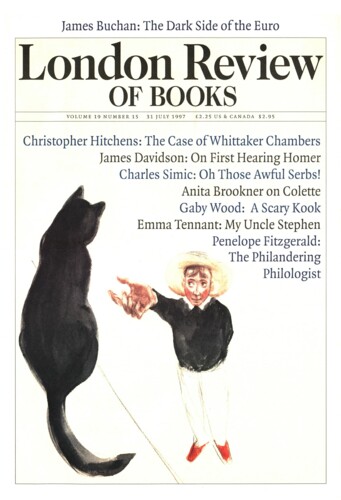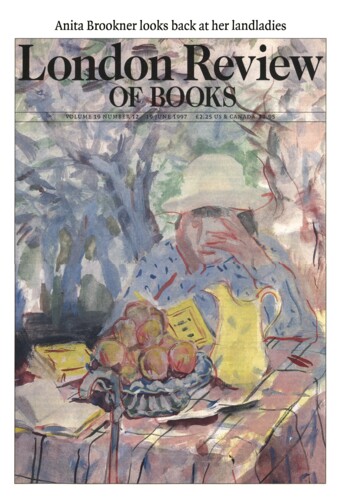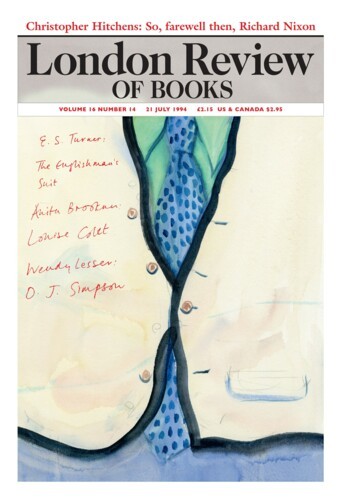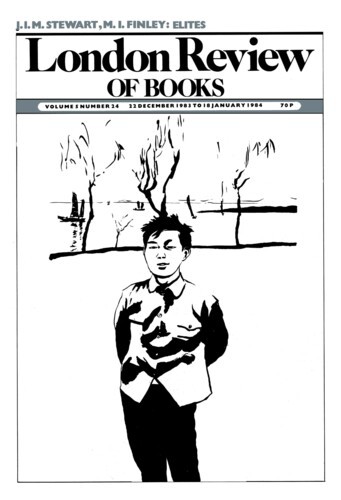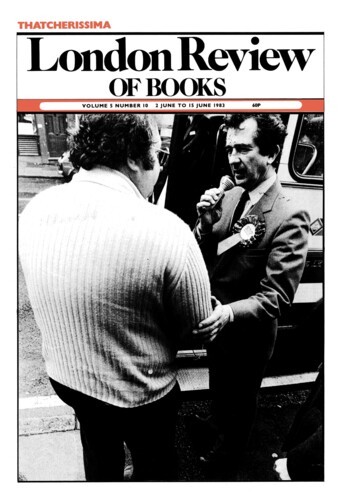Fearless Solipsist
Anita Brookner, 31 July 1997
It pays to take a romantic view of oneself; distinction is only tardily conceded by others. In the business of self-assessment – which was her business – Colette was never far from self-promotion. This endeavour sustained her through three marriages, numerous love affairs, and, more important in her own estimation, 49 volumes, some of them admittedly slight. She expressed admiration for George Sand, who could finish one novel and begin another in the same half-hour, yet she herself could shoulder the equally impressive task of projecting her image throughout a long and varied life, both on and off stage. Her undoubted beauty helped, yet it is not as a beautiful woman that Colette is remembered but as a fearless solipsist. The title of one of her later books, Le Voyage égoïste, describes her progress perfectly To her singular status the gift of sumptuous prose, refined from tentative beginnings, seemed a natural adjunct. Her readers came from every level of society, and from every sex: her emotional range was wide, but not necessarily indulgent. Henry de Montherlant, who described her as ‘le plus grand écrivain français naturel’ was wrong: Colette is a work of art, and one created entirely by her own means.’’
